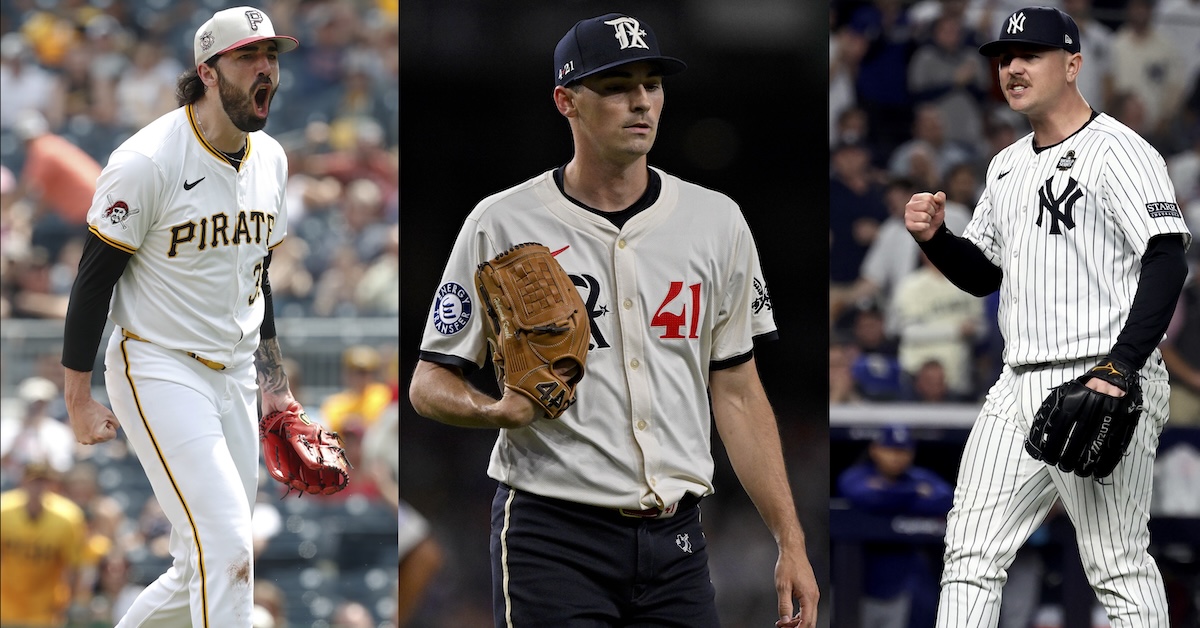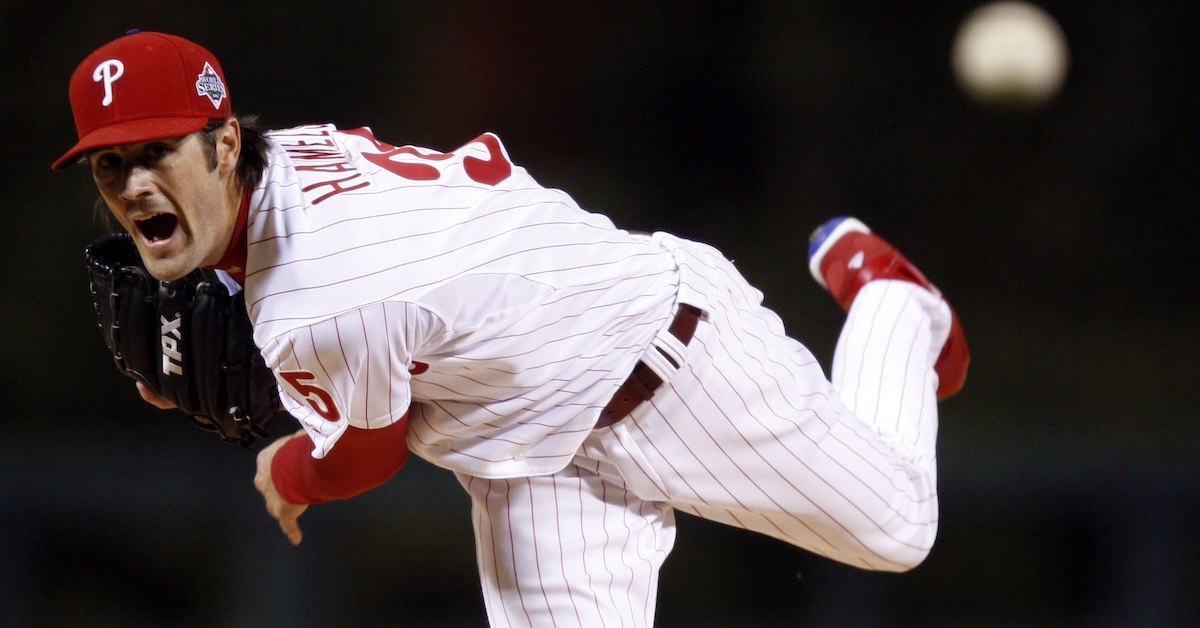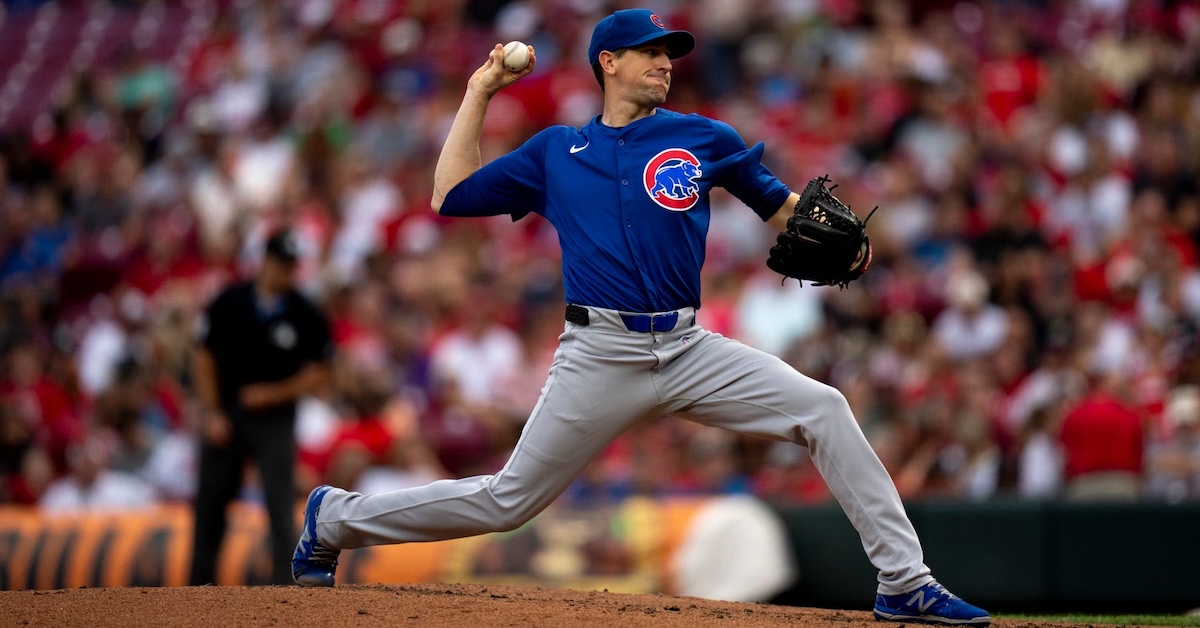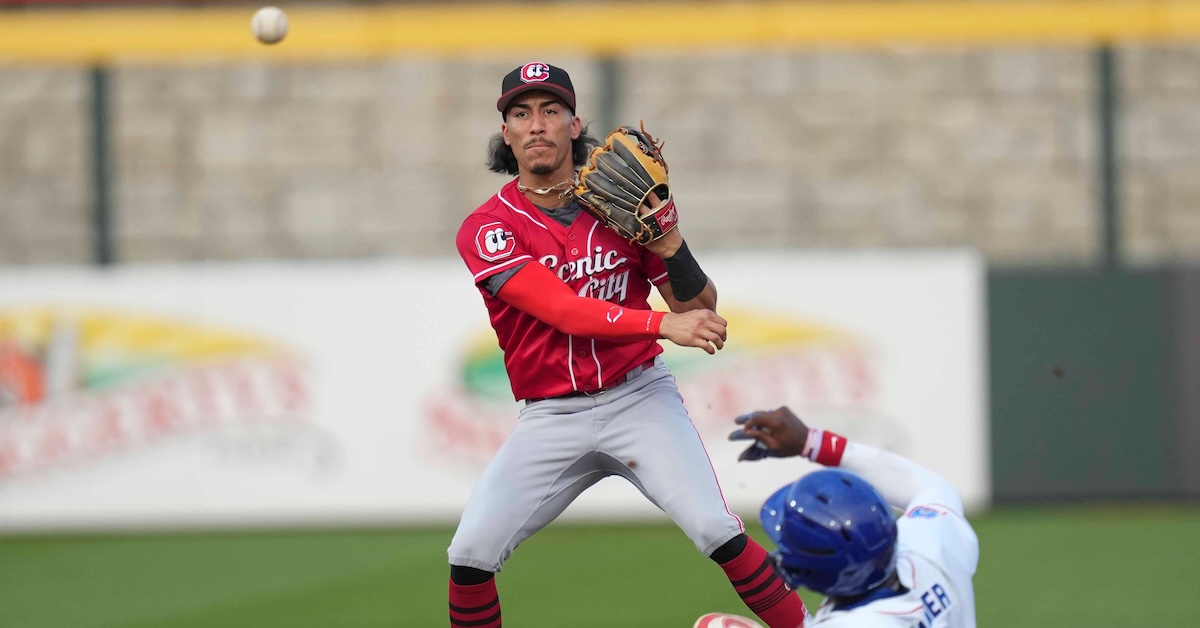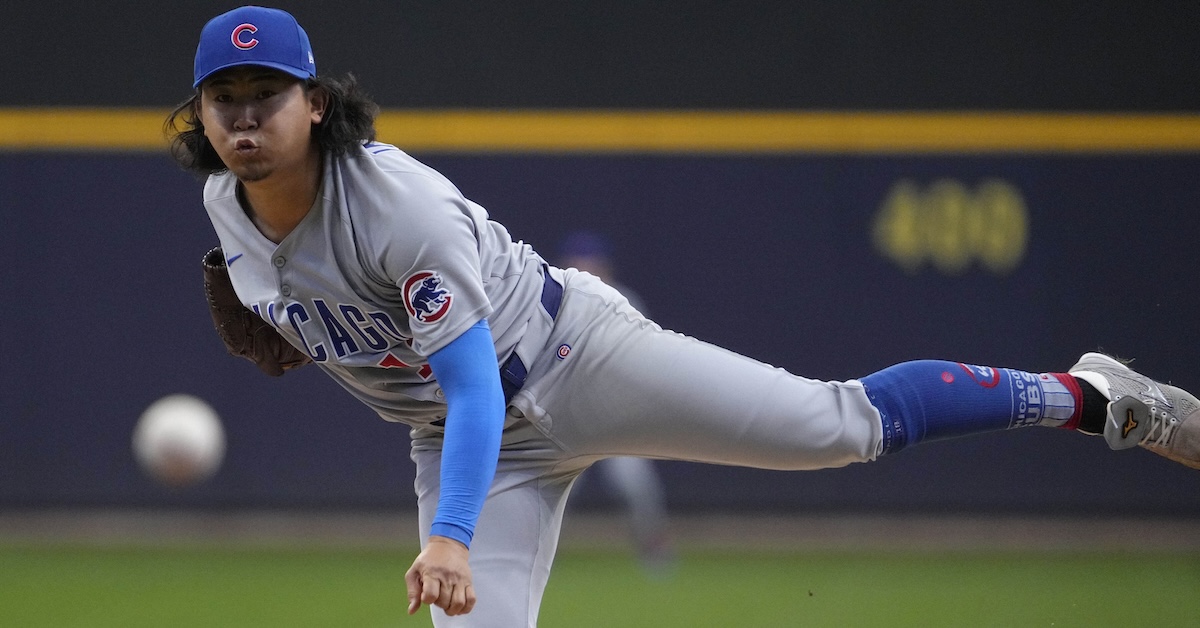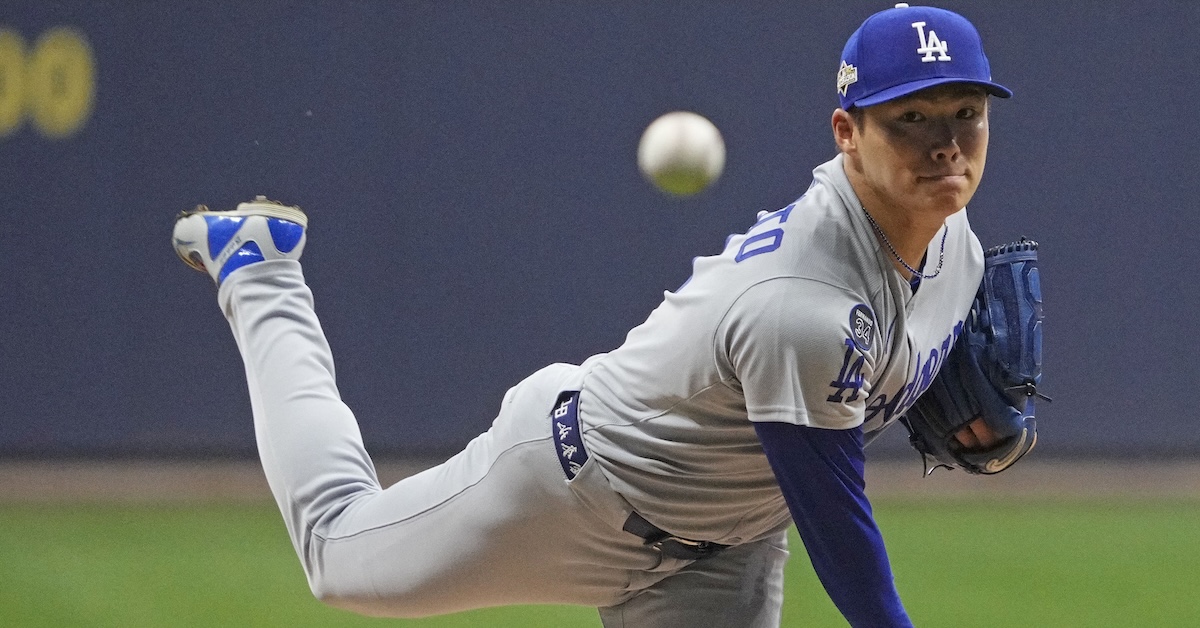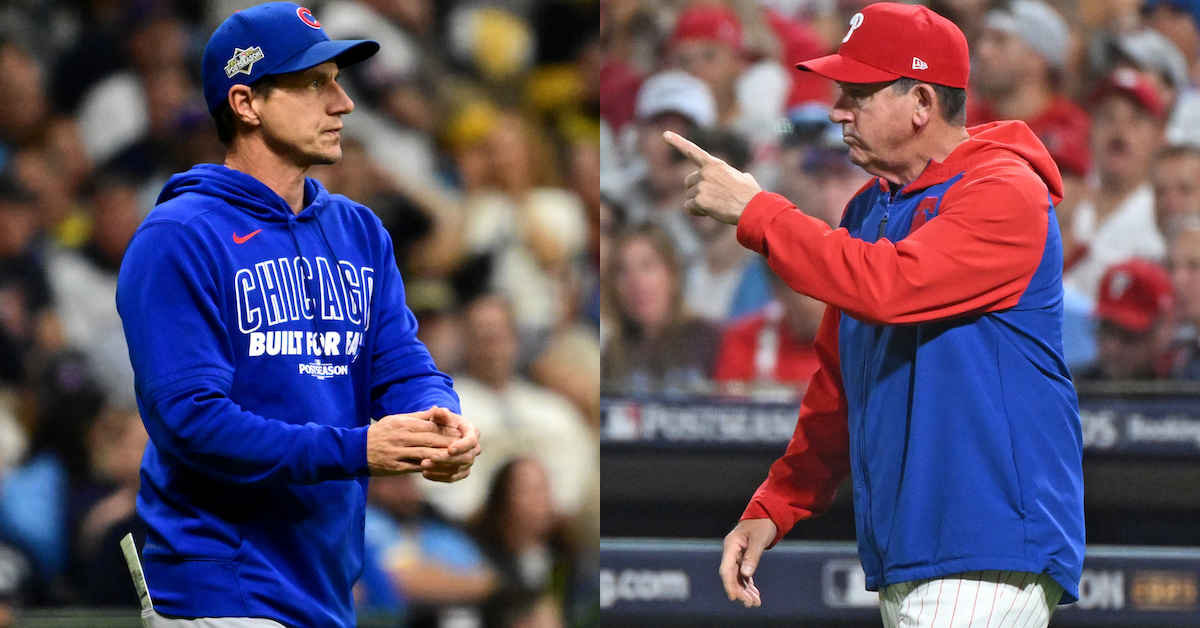Pitcher Potpourri: The Mid-Tier Lefties Vanish in One Fell Swoop

At first, it was a trickle. A Gregory Soto here, a Hoby Milner there. On Tuesday, though, we were staring down a veritable deluge. In a single day, the low-to-mid-tier short-term left-handed pitching market got ransacked like a Ralph’s on the Wednesday before Thanksgiving. In rapid succession, three cromulent southpaws inked deals. First, it was Caleb Thielbar, returning to the Cubs on a one-year pact. Foster Griffin followed, lured back from Japan by a $5.5 million guarantee from the Nationals. Finally, Caleb Ferguson linked up with the Reds, also for a single year. (Later on Tuesday, Drew Pomeranz joined the party; he agreed to a one-year contract with the Angels, which be covered in a separate post.) Let’s assess each of these deals in the order in which they signed:
Caleb Thielbar
When Thielbar appeared on one of these roundups around this time last year, it was under sorrier circumstances. The weathered middle reliever had just dropped a stinker, walking 11.1% of hitters on his way to 47 1/3 innings of a 5.32 ERA. The Cubs handed him a “here’s your last chance” $2.75 million; given that Thielbar was heading into his age-38 season, another shoddy campaign would’ve likely marked the end of a surprisingly successful career for the former 18th rounder.
Instead, the wily veteran innovated his way out of a hole, adding a new pitch and delivering a vintage Thielbar performance. The terms of his deal have not yet been disclosed, but considering that many relievers this offseason have signed for more money than they were expected to get, Thielbar almost certainly received a healthy raise to keep playing ball for a living.
In 2025, his strikeout rate remained down a few points from his 30ish% peak, but Thielbar got his command back, in part due to his decision to replace a good chunk of his big old sweepers with a tighter, cutterish hard slider. The slutter (sorry) was a genius bridge between his three other pitches, which are all relatively easy to identify out-of-hand. By adding a pitch that he could conceivably tunnel with his four-seamer, curveball, and sweeper, he seems to have increased the effectiveness of his entire arsenal.

See all of those yellow dots on the pitch plot above? That pitch did not exist before this year. In 2024, Thielbar primarily attacked lefties with the sweeper, throwing it 55% of the time in same-handed matchups. A pitch with all that movement — 14 inches of horizontal movement on average — is hard to land for strikes. His new slider doesn’t have that sort of crazy break, and he had a much easier time throwing it in and around the zone.
And it wasn’t just a chase pitch to lefties. Thielbar also used the new slider as a soft-contact generator against right-handed batters, jamming them inside with respectable velo and glove-side break:
Otherwise, it was vintage Thielbar, slinging slow, high-ride fastballs and some of the prettiest curveballs in the sport. He handled righties and lefties alike, and will assume a similar role in the Chicago bullpen, navigating medium-high leverage situations, particularly when that leverage context coincides with a run of lefties.
Foster Griffin
Last we saw of Griffin stateside, it was 2022, and he was languishing in Quad-A limbo, making brief cameos with the Royals and Blue Jays before hopping on a bus back to Omaha or Buffalo. Back then, he was a fringy bullpen arm, leaning on a cutter with a movement profile that coincidentally resembled Thielbar’s new slider. On top of the cutter, Griffin featured a dead-zone four-seamer at 93 mph, a pretty standard curveball, and a changeup with some quality arm-side fade.
The uninspiring stuff and varied arsenal felt more befitting of a backend starter, and starting is exactly what Griffin took to with the Yomiuri Giants, where he pitched some excellent ball for three seasons. The final was his finest for the Tokyo-based club. He posted the third-best FIP (1.78) among NPB hurlers with at least 70 innings pitched, striking out a quarter of hitters and allowing just a single home run.
What changed? For that, I’ll hand it over to James Fegan, who wrote up a little blurb on Griffin for The Board:
The addition of a low-80s splitter is the profile-changing development since the last of Griffin’s eight career big league innings. Its raw action won’t knock you out of your chair, but it flirted with a 50% miss rate this past season because Griffin almost never leaves it in mistake locations. His steep approach angle makes the pitch nearly impossible to lift, allowing Griffin to allow fewer home runs (18) in over 300 innings in Japan than he gave up in his last full season in the PCL (20) in 2019. Even topping out at 93 mph now, this is still too much of a nibbling profile to project him beyond a multi-inning swingman role. But now that he can wield his splitter as an out pitch to either side, it’s easier to see Griffin carving out a Tyler Alexander-shaped niche at the end of a pitching staff.
The prospect team gave Griffin a 35+ FV grade, suggesting he is unlikely to do much more than hoover up innings for the Nationals. But if there’s a club in need of some innings-hoovering, it’s the Nats, who have a bunch of question marks on the staff after MacKenzie Gore, and that’s assuming they hang onto Gore, which, who knows.
Caleb Ferguson
The second left-handed Caleb in this roundup is 10 years younger than his predecessor. Once a whiff chaser with shaky command, Ferguson leaned hard into contact suppression in 2025, scaling back his four-seamer against same-handed hitters while boosting the sinker to nearly 50% usage. At times, this worked great. His strikeout rate dropped over eight percentage points, but the heavy combination of sinkers and cutters gave Ferguson some of the lowest barrel rates and exit velocities in the league.
Chasing weak contact as a relief pitcher can be a blessing and a curse. Attacking the zone with three fastballs keeps the walks down and the extra base hits to a minimum. But it also means a big chunk of balls in play, and one day the BABIP gods will rise with vengeance and rain misery upon your poor ERA. Unfortunately, this happened to Ferguson at a crucial juncture. Plucked from Midwestern obscurity in Pittsburgh and thrust into a playoff push in Seattle, he initially performed well before running into a spate of poor performances in late August and early September. In a tight postseason race, that was that — Ferguson didn’t get many leverage opportunities for the remainder of the season, and his brief playoff work went terribly. Brought in to close down a seven-run lead in the ninth inning of ALDS Game 3, Ferguson allowed three runs without recording an out, requiring Dan Wilson to throw Andrés Muñoz on a day that he could’ve secured some crucial rest. It cannot be great for a reliever to get shelled on a big stage in his final moments before hitting the free market.
For most of his Mariners tenure, Ferguson was treated like a member of the B team, deployed mostly in losing efforts. Will the Reds, themselves a recent playoff club, trust him to handle leads in close games? It’s sort of on the edge. RosterResource sees Ferguson as the fourth arm out of the pen, behind Emilio Pagán, Tony Santillan, and Graham Ashcraft. Astute readers will note that all three of those guys throw baseballs with their right arm, and so Ferguson will assume the mantle of Most Trusted Lefty, prying that loosely held title from Sam Moll’s fingertips.

